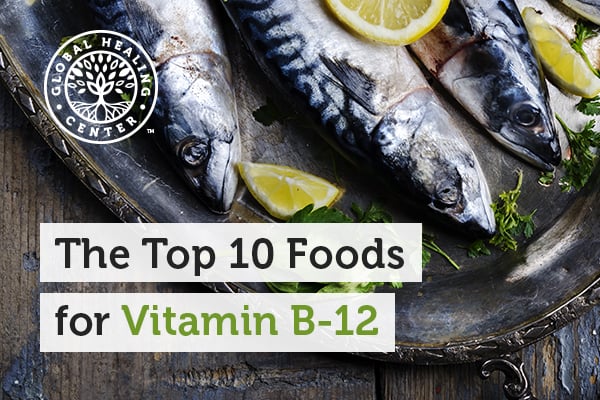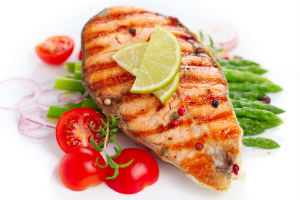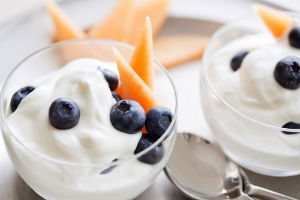
Vitamin B-12 is an essential nutrient that’s involved with a lot of important processes in the human body. [1] Food is the primary source for this nutrient, with supplements being the secondary source for some people. Vitamin B-12 is structurally the largest and most complex of all the vitamins known to man. Interestingly enough, vitamin B-12 is integral to normal energy metabolism in all cells of the body as well as amino acid and fatty acid metabolism. Additionally, B-12 is extremely important in a myriad of other vital physiological processes such as brain function and nervous system health, myelin sheath health, blood formation, bone marrow health, and DNA synthesis/regulation.
A unique essential nutrient, vitamin B-12 isn’t produced by plants, animals, or even fungi, instead being produced only by certain bacteria. Human requirements for vitamin B-12 as set by the Daily Recommended Intake (DRI) are 2-3 micrograms/mcg per day to upwards of 4-7 micrograms/mcg per day. [2] Naturally-occurring sources of Vitamin B-12 are found primarily in foods of animal origin and among fortified foods of vegetarian/vegan origin. If you are a practicing vegan, supplementation may be the best option for you to ensure you receive adequate to optimal daily intake.

Top 10 Food Sources of Vitamin B-12
The majority of food sources for vitamin B-12 come from foods of animal origin, making vegan options somewhat limited. Certain soil bacteria synthesize B-12 and some people believe that eating unwashed vegetables may provide trace amounts of the vitamin. However, most people aren’t too keen on eating dirty vegetables. Further, there is no evidence that suggests soil bacteria generate any forms of B-12 the body can actually use.[3] Ensure you’re getting the B-12 you need with a high-quality supplement, such as VeganSafe™ B-12. It contains the two most bioavailable forms of B-12 to help you maintain your energy levels.
Those of you who eat meat, eggs, and dairy will likely have an easier time getting B-12, but please remember, consuming animal products carries other health concerns. This is particularly true if the animal is raised in a conventional feedlot environment. While we at Global Healing Center always advocate a raw vegan diet, we understand that not everyone will adopt this lifestyle. For you, here are the highest non-vegan sources (and some plant sources) of vitamin B-12:
1. Liver (Beef)
71 mcg per 3-ounce serving Provides 2951% of DRI 114 calories
2. Mackerel
16 mcg per 3-ounce serving Provides 667% of DRI 174 calories
3. Sardines
8 mcg per 3-ounce serving (most cans are 3-4 ounces ea.) Provides 333% of DRI 189 calories
4. Fortified Cereals
5 mcg per cup Provides 208% of DRI 160 calories

5. Red Meat
5 mcg per 3-ounce serving Provides 208% of DRI 213 calories
6. Salmon
4 mcg per 3-ounce serving Provides 167% of DRI 119 calories
7. Fortified Soy
2 mcg per 3-ounces serving Provides 83% of DRI 45 calories
8. Milk
1.2 mcg per cup (8 fluid ounces) Provides 50% of DRI 83 calories
9. Swiss Cheese
1 mcg per ounce Provides 42% of DRI 108 calories

10. Yogurt
1 mcg per cup Provides 42% of DRI 149 calories
The Take Home
The highest levels of B-12 from vegan sources are often in the form of fortified grains, like breakfast cereals. While this can be a great way to receive the vitamin if you are a practicing vegan or vegetarian, most fortified grains are typically refined and sometimes filled with sugar. It is best for vegans and meat eaters alike to supplement with vitamin B-12, as eating meat is not always a guarantee for healthy vitamin B-12 status. A vegan supplement, like VeganSafe™ B-12, could be helpful for maintaining appropriate levels of the nutrient.
Length: 50 minutes
References (3)
†Results may vary. Information and statements made are for education purposes and are not intended to replace the advice of your doctor. Global Healing Center does not dispense medical advice, prescribe, or diagnose illness. The views and nutritional advice expressed by Global Healing Center are not intended to be a substitute for conventional medical service. If you have a severe medical condition or health concern, see your physician.

